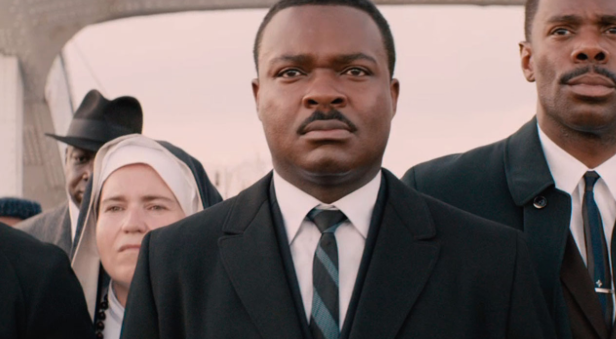Selma Movie Review
February 6, 2015
Selma, directed by Ava DuVernay, portrays Dr. Martin Luther King Jr.’s determined endeavor in eradicating the prejudiced refusal of African-American citizen’s right to vote from its roots. Although the right to vote had legally been given to the African-American population in the United States, in the South it was evident that some were still being denied a voice in the election booths, as they were denied in the process of applying to become legal voters. Dr. King and his acquaintances made the nest for their movement in the township of Selma. Throughout the movie, Dr. King and the SCLC (Southern Christian Leadership Conference) work on raising awareness of their campaign as well as carrying out the famous march from Selma to the capital of Alabama, Montgomery.
The film was phenomenal for it not only inquired exceptional performances from the starring actors, such as David Oyelowo (Dr. Martin Luther King Jr.) and Carmen Ejogo (Coretta Scott King), but also properly conveyed Dr. King’s powerful messages through the poignant events that took place. This was carried out without the blanket of euphemistic detail or censored scenes, which contributed to the movie’s intensity concurrently with its potency. The movie did an exceptional job in raising both commemoration for Dr. King’s movements and efforts, as well as awareness of the vigorous prejudice imposed upon African-Americans, for the gravity of it is often overlooked or uninfluential upon younger generations. In contrast to its various coups, it can be said that DuVernay had depicted President Johnson in an antagonistic fashion. He was often shown in conflict and adversity with Dr. King and his movement. In reality, however, President Johnson and Dr. King were often in accord and worked together to combat against the many civil rights movements they endured in their time, such as the illegal refusal of the basic right to vote to the African-American population. Nonetheless, the feats of Selma exponentially outweigh its flaws. It is a powerful, moving and compelling film that has a vast horizon of morals and lessons to be learned, but most importantly, the just influence of Dr. Martin Luther King Jr.
